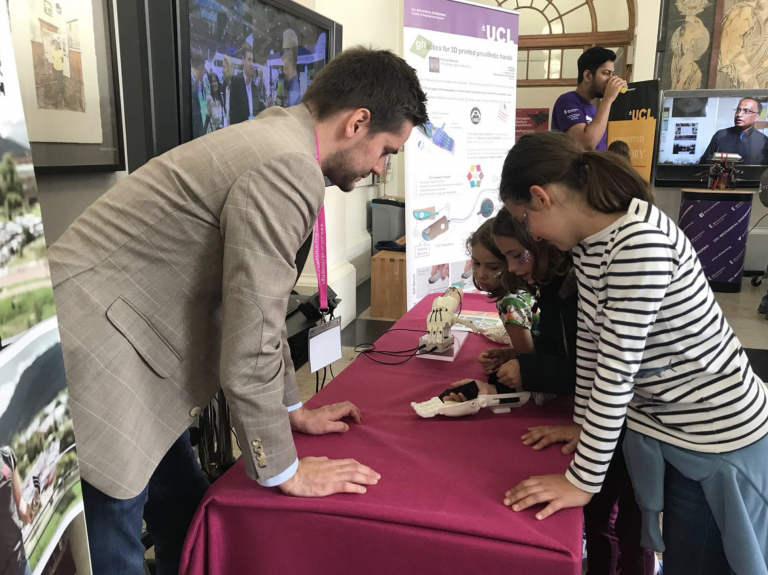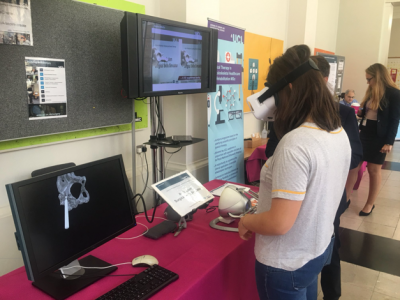It's All Academic Festival 2018
24 September 2018
On Saturday 15 September, UCL held its second ‘It’s All Academic Festival’, and IHE researchers were there showcasing the latest in healthcare innovation.

The festival is the university’s largest-ever philanthropy and public engagement campaign, designed to raise funds for world-impacting research and student support. The festival focuses on four themes - health, students, London and disruptive thinking.
A team from the Department of Mechanical Engineering led by Dr Helge Wurdemann showed off the latest advancements in prosthetic devices. Using 3D printers, they have developed body-powered prosthetic hands made from low-cost and recyclable materials.
The Nanoengineered Systems Lab gave an interactive talk on nanoparticles. They explained how nanoparticle suspensions can be found in everyday products, like toothpaste and beauty creams, and how these suspensions can be Newtonian and non-Newtonian. Using cornflour and water they demonstrated non-Newtonian liquids – fluids that flow easily with gentle forces but act like solids when stronger forces are applied. The team explained how they combine these nanoparticles with other materials and 3D printing to create miniature imaging devices and sensors.
Researchers from Aspire CREATe (a collaboration between UCL and the Royal National Orthopaedic Hospital) gave a demonstration of their life-changing work in the UCL Cloisters. More than 300 members of the public snapped up the opportunity to create a 3D avatar of themselves and walked away with a printed souvenir. Similar technology has been used to create tailor-made orthopaedic implants for patients.
Visitors to their stand could also try their hand at a virtual surgery simulator. Using a haptic robot and virtual reality goggles, visitors could perform ‘orthopaedic surgery’ in a completely safe environment! In the real world, this technology is used to train orthopaedic surgeons and simulate complex procedures.

A visitor tries out AR goggles at the Aspire Create stand (credit: @UCLAspireCreate, Twitter)
Dr Simon Walker-Samuel from the UCL Centre for Advanced Biomedical Imaging displayed the REANIMATE software (REAlistic Numerical Image-based Modelling of biologicAl Tissue substratEs). This research was done in collaboration with IHE Director, Dr Rebecca Shipley. The structure of cancerous tumours is notoriously confused and varied. This makes it difficult to predict how a tumour will react to cancer-treating drugs. REANIMATE calculates what the internal structure of a tumour looks like so doctors can understand whether a drug will be effective. Through VR goggles, visitors had could ‘explore’ a virtual tumour.
It was fantastic to see so many visitors get a hands-on experience with healthcare innovations and to share what we do with them.
 Close
Close

